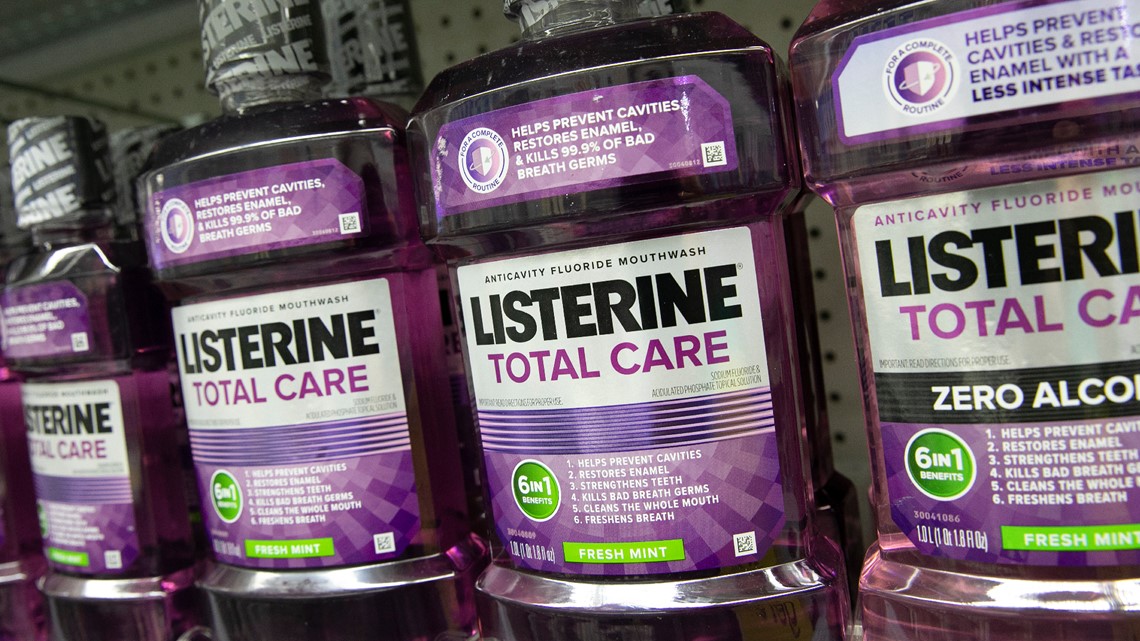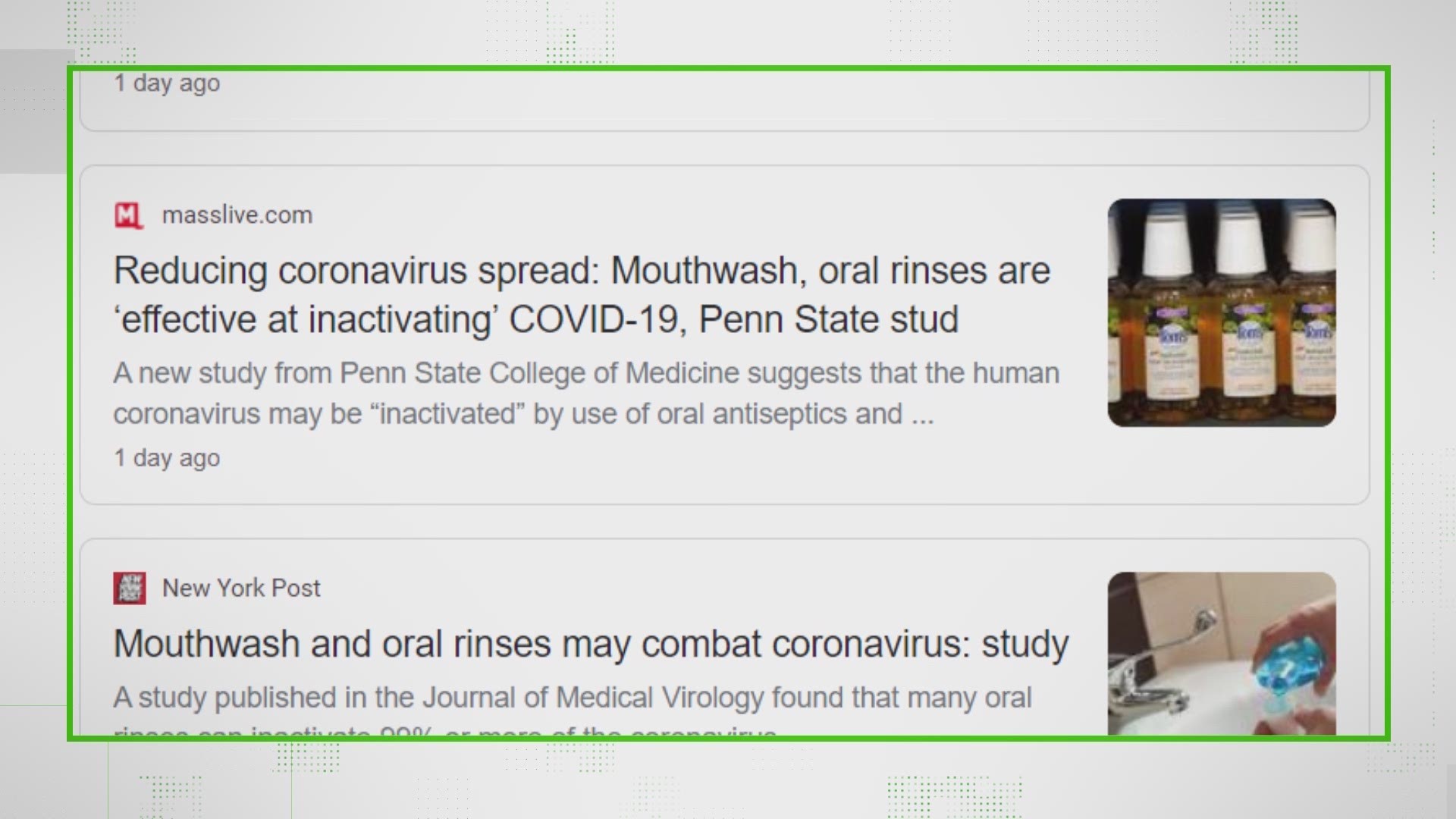A new study made headlines this week that has people claiming mouthwash could combat COVID-19.
Mouthwash is an everyday item that’s used by many people several times a day, anyway. And it could have a big impact if it becomes a potential cure or treatment for the coronavirus.
But to what extent did the study say this could fight COVID-19? Does it go so far as to say that it’s a cure?
THE QUESTION
Did a study say that mouthwash could potentially combat COVID-19?
THE ANSWER
Yes, they say certain mouthwashes may inactivate the virus in your mouth and sinuses. But that’s not the same as a cure, and the study’s lead researcher says it doesn’t replace the need for masks and social distancing.
More research about the potential impact is underway, and the kind of mouthwash used matters.
WHAT WE FOUND
The study was released this week by a Penn State College of Medicine research team led by Craig Meyers. They found certain oral antiseptics and mouthwashes may have the ability to inactivate human coronaviruses.
Several tables in the study’s text show that one to two minutes of using Johnson & Johnson baby shampoo as a nasal rinse inactives more than 99% of the present virus while at least 30 seconds of Crest Pro Health, Listerine Antiseptic, Listerine Ultra, Equate Antiseptic, CVS Antiseptic Mouthwash, and Betadine 5% mouthwashes inactivate up to or more than 99.99% of virus in your mouth.
And even the tested mouthwashes that were less effective still took care of much of the virus. “Most of the common over‐the‐counter mouthwashes/gargles tested demonstrated at least a 90% reduction in infectious virus at 1 min of contract time with the majority of products showing increasing virucidal activity with longer contact times,” the study said.
However, Dr. Meyers told the VERIFY team in a video interview that this doesn’t replace the need for masks.
This study reflects only the active virus in your mouth and sinuses and does not eliminate the virus from the rest of your body. He said that research shows sick people have a lot of active virus in their mouth, and so gargling mouthwash has the potential to make sick people less infectious. This could be especially useful for a sick person to do when a healthy person is quarantining with them or for a patient to do at the dentist’s office before a dentist has to spend a lot of time close to their open mouth.


This doesn’t cure you of the virus. And if you’re already sick with the virus, eventually it will return to your mouth and sinuses sometime after you’ve used the mouthwash. That’s why masks and social distancing still matter even if you’re using mouthwash.
Dr. Meyers also said that once the virus gets in your cells it’s too late to stop it. So using mouthwash to try and prevent yourself from getting sick isn’t practical since you’d need to use it soon enough after being exposed to kill the virus before it enters your cells.
One last note: these are early results. The mouthwashes in the study were used on cell cultures in a lab. The next step is clinical trials where they will see how the mouthwashes combat the virus in actual people. There still could be some time before results on those studies are released.
Something you'd like VERIFIED? Click here to submit your story.

